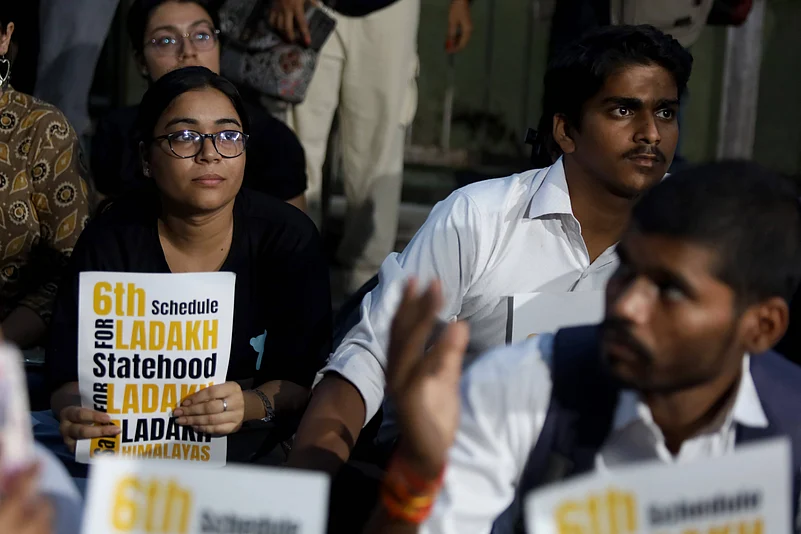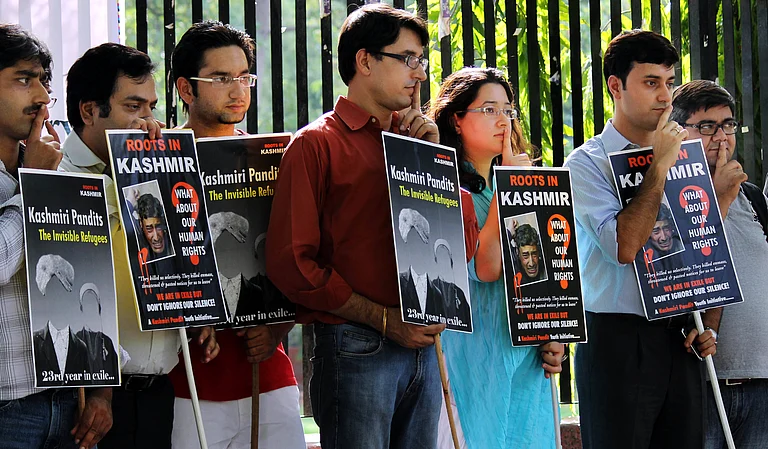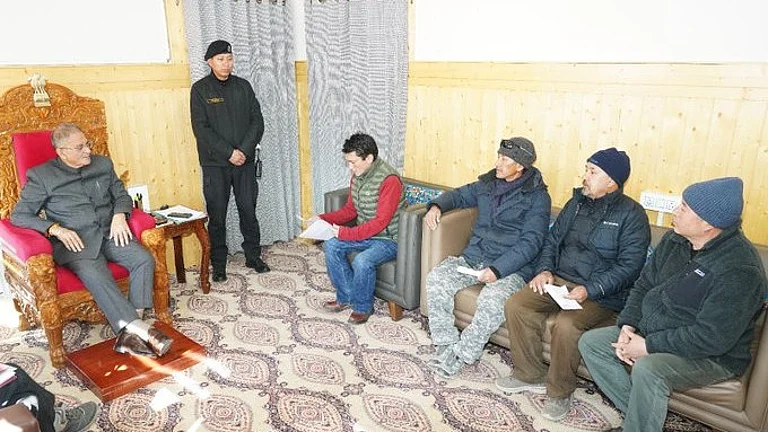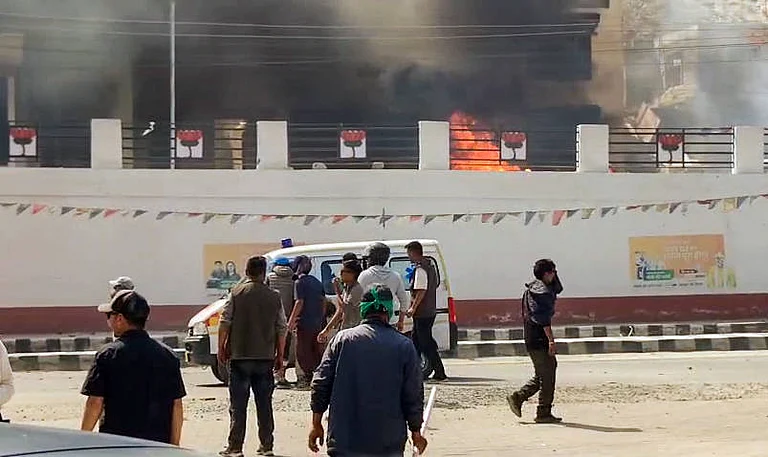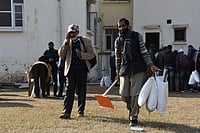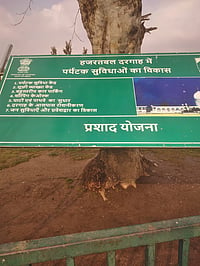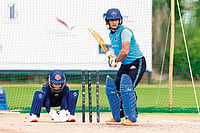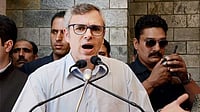
A meeting of the members from both the Leh Apex Body (LAB) and the Kargil Democratic Alliance (KDA) was held on October 22 with the subcommittee of the Ministry of Home Affairs (MHA) over the demands of the Sixth Schedule and statehood for the Ladakh region.
The central government has not given any positive response to the Ladakhi leadership’s demand to increase the number of parliamentary seats from one to two, contending that delimitation is barred until 2026.
A fresh meeting of the MHA’s subcommittee will be held with the Ladakhi leadership in a week's time
The Central government has given a cold shoulder to the demand to increase Ladakh's parliamentary seats from one to two. Talks between local leaders and the Ministry of Home Affairs (MHA) on statehood and the Sixth Schedule were held in a cordial atmosphere.
The Centre has said increasing the seats is not possible because delimitation is barred until 2026. However, the dialogue on other issues, including statehood and constitutional safeguards, proceeded on a positive note.
Members from both the Leh Apex Body (LAB) and the Kargil Democratic Alliance (KDA) attended the October 22 meeting with the MHA subcommittee to discuss the region's political demands. Another meeting will follow within a week before higher-level discussions.
LAB core committee member Ashraf Ali says the meeting was held in a cordial atmosphere. He adds that the main demands were statehood and the Sixth Schedule, and they also sought the release of detainees who were held while protesting peacefully.
However, ahead of the talks, the Centre did not give a positive response to the demand for more parliamentary seats. During the talks, the Central government said that the number of parliamentary seats can’t be increased before 2026.
“We have been demanding that since Ladakh is a large area spread over 6,000 square kilometres, there should be two parliamentary seats, one for Ladakh and another for Kargil,” says Ladakh MP, Haji Haneefa.
The LAB also sought the release of climate activist Sonam Wangchuk and other detainees who were arrested for their involvement in the September 24 protests over the demands of statehood and the Sixth Schedule.
Wangchuk is currently in Jodhpur Central Jail and has been blamed for inciting protests last month that led to four deaths and several injuries. Haneefa says that blaming Wangchuk for a threat to national security, after he led the hunger strike for statehood and the Sixth Schedule, was uncalled for.
“We will resist all attempts to defame the struggle of the Ladakhis, which has been launched for our constitutional rights and safeguards, which include preserving our identity and culture of the region. We want the return of democracy and an end to the bureaucratic rule in Ladakh, and that is the reason we took part in peaceful protests,” he says.
In today’s meeting, while LAB and KDA members sought statehood and Sixth Schedule benefits for Ladakh, extending Article 371 and granting law-making powers to the two Ladakh Autonomous Hill Development Councils (LAHDCs) of Leh and Kargil also emerged as alternative political solutions. Ladakh was carved out as a separate UT from the erstwhile state of Jammu and Kashmir on August 5, 2019, when New Delhi abrogated Article 370 of the Indian Constitution, stripping both Kashmir and Ladakh of a separate constitution and flag.
The LAB and KDA have said that the Sixth Schedule will enable Ladakh to frame laws to protect land and jobs of the region through autonomous district councils. There are fears in the cold desert region that since the population of the UT was not more than four lakhs, the settlement of non-locals in the region could alter the demographics and deprive local people of their jobs and land.
Ashraf Ali says that after another sub-committee meeting, a meeting of the High-Powered Committee of the MHA, previously chaired by Home Minister Amit Shah and Minister of State for Home, Nityanand Rai, will be held to discuss the demands of the region. After the previous meetings, the benefits of barring non-locals from domicile status until 2034 and reserving 85 per cent of jobs for local people were extended to Ladakh.
Following last month’s protests that saw youth setting fire to the BJP office in Leh and torching several vehicles, including a police van, talks had remained suspended. The fresh engagement started only after the Central government agreed to one of the demands of the LAB and initiated a judicial probe to inquire into the alleged use of indiscriminate force against people protesting for statehood and the Sixth Schedule.
Gelek Phunchok, a LAB organising committee member, states that earlier rounds of talks with the Central government addressed issues of domicile and reserving jobs for local people. The dialogue has now proceeded to fulfill the political demands of the Sixth Schedule and statehood for Ladakh, he adds.






